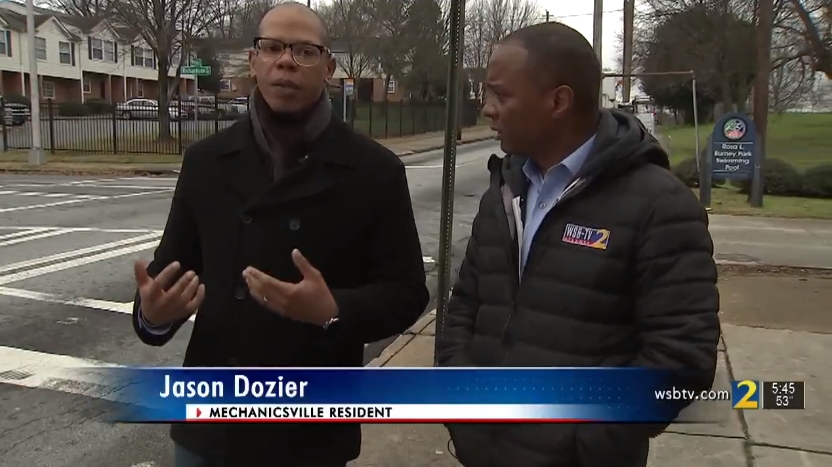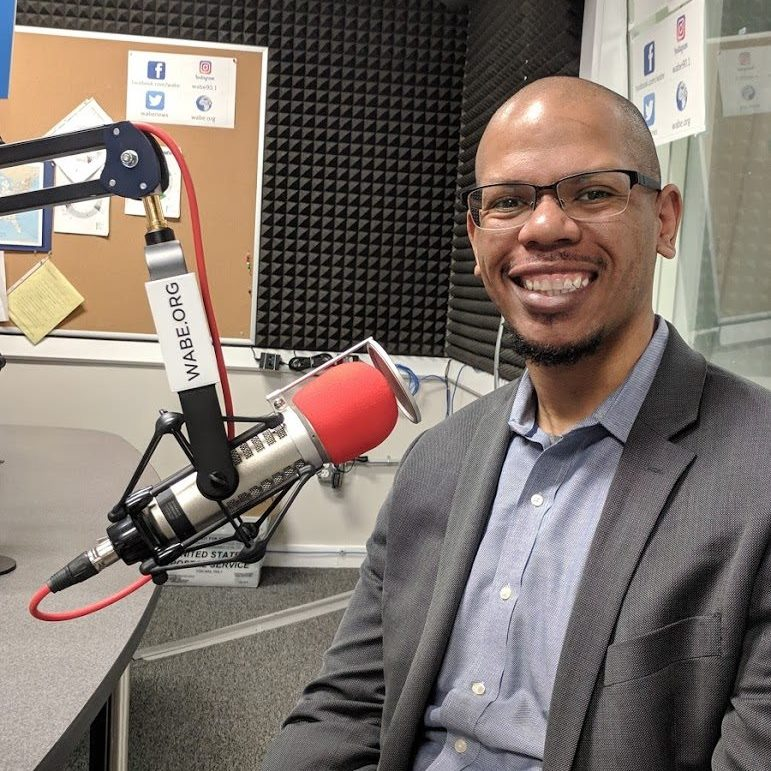
I want to extend a big thank you to Dave Huddleston and the WSB-TV team for providing me with space to talk about Mechanicsville and the health disparities our community is facing. We’re working every day to improve the quality of life of the people in our community, and I hope the awareness will encourage our leaders to take action.
While these disparities might be alarming for some observers, this is not particularly revelatory for the folks that live in Mechanicsville or in surrounding communities. Just a few years ago, Georgia State students engaged with residents to develop a prioritized list of community concerns around environmental hazards, and flooding, air pollution, and brownfields were at the top of the list of concerns.
This is nothing new.
In the interview, I tried to highlight the intersection between tenants’ rights, air quality, economic racism, and even street design and safety. But as is the norm with these things, some of my comments didn’t make it to the broadcast. So I’ll add a bit more here:
For context, more than 70% of Mechanicsville residents are renters, and many of those renters live in substandard housing conditions that negatively affect health outcomes. Mold, infestations, and illegal evictions drive up the mental stress that was mentioned in the story. And physically, black mold drives up rates of asthma and other chronic respiratory conditions which disproportionately impacts children. And that’s worsened by the fact that our neighborhood is at the convergence of *three* interstate corridors, so air quality is dismal outdoors as well. It’s no wonder that NPU-V has one of the highest pediatric asthma rates in the country. More on that here:
https://www.aecf.org/blog/giving-kids-a-healthy-start/
http://www.asthmacommunitynetwork.org/node/2929
Potentially, healthy lifestyles can help counteract many of these issues. But it’s exceedingly difficult to maintain a healthy lifestyle in our communities. On one hand, most of NPU-V is defined as a food desert by the US Department of Agriculture, so access to fresh foods and vegetables are extremely limited. On the other, poor access to safe streets makes it hard to change behaviors. Try walking or biking out of Mechanicsville to Castleberry Hill, or Pittsburgh, or Summerhill, or West End. Trains routinely block critical connections and highway access encourages motorists speeding at 60 miles an hour on city streets compound a transportation situation that’s already exceedingly dangerous and difficult.
Needless to say, we have a ways to go. With that said, I’m extremely proud of our communities, our supporters, and our advocates who are working tirelessly to improve the quality of life of our neighbors. Specifically, I want to shout out some of the organizations putting in the work to make Mechanicsville and NPU-V a better place to live.
I’m proud of Housing Justice League and their fight for tenants’ rights and their efforts to hold these terrible landlords accountable. Their eviction defense tools have helped countless families fight displacement in a rapidly changing city.
I’m proud of Atlanta Volunteer Lawyers Foundation’s work through their Standing with Our Neighbors initiative which provides legal services to ensure tenants don’t have to live with black mold and unclean air-filters.
I’m proud of Atlanta Bicycle Coalition, who through their Shifting Gears program, provides second graders with bicycle safety training during the school day. Their work with our kids at Dunbar Elementary has helped grow the next generation of urban cyclists by exposing them to healthy lifestyle choices.
I’m proud of the work of the Mechanicsville-based Center for Black Women’s Wellness, Inc for their commitment to improving the health and well-being of underserved Black women and their families. Their Atlanta Healthy Start Initiative serves approximately 300 pregnant and postpartum women and infants annually.
And last but not least, I’m proud of ECO-Action‘s work in educating community members on environmental justice advocacy and education.
But local advocacy nonprofits can only do so much. If leaders want to improve public health outcomes in Mechanicsville and in similar communities, then they absolutely need to put policies in place that will support our black, brown, and marginalized families. We need multi-generational solutions from all levels of government. The City of Atlanta will have elections next year, but there are state offices that are up for election right now. Get involved if you aren’t already.
We’ve got to do better. And we shouldn’t have to wait until I’m dead at 65 before it gets better.


